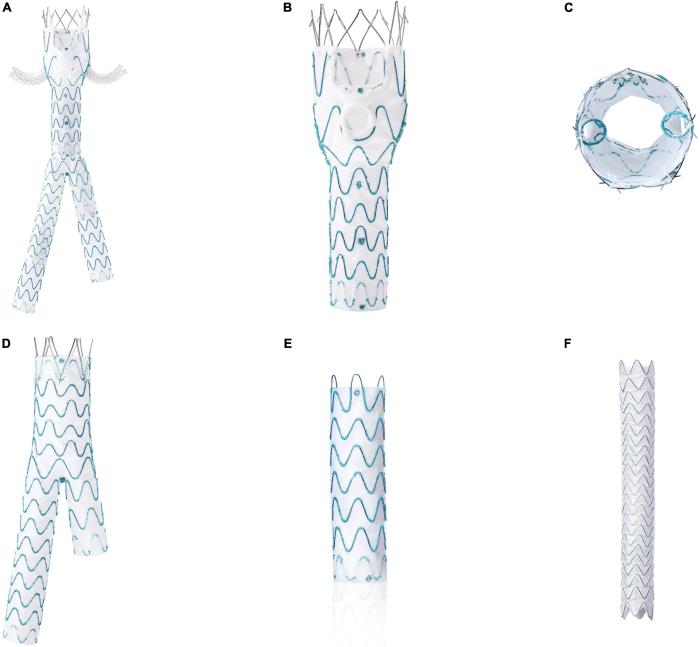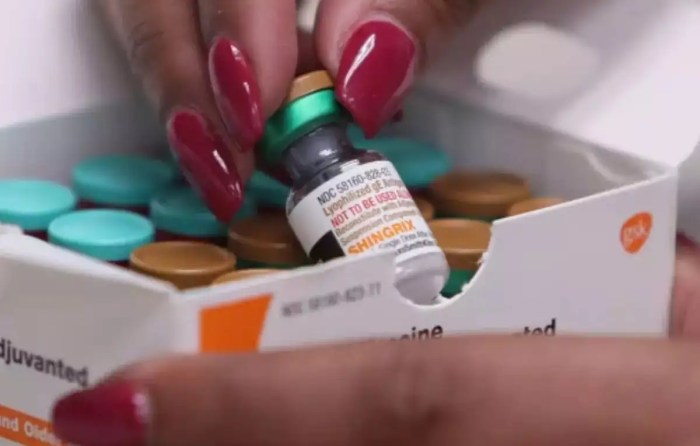How graft versus host disease GvHD is diagnosed is a crucial aspect of patient care. This comprehensive guide delves into the intricacies of identifying GvHD, from understanding its underlying mechanisms to employing various diagnostic tools. We’ll explore the different types of GvHD, their clinical manifestations, and the essential factors to consider when evaluating a patient for potential GvHD.
From detailed patient histories to advanced imaging techniques, we’ll uncover the diagnostic pathway, examining the diagnostic criteria for acute and chronic GvHD, and highlighting the importance of differential diagnosis to rule out other conditions. We’ll also discuss the role of staging and classification in tailoring treatment strategies.
Introduction to Graft-versus-Host Disease (GvHD)

Graft-versus-host disease (GvHD) is a serious complication that can arise after a stem cell transplant. It occurs when the immune cells (T cells) in the donated bone marrow or stem cells recognize the recipient’s tissues as foreign and attack them. This attack can damage various organs and tissues, leading to significant health problems. Understanding GvHD’s mechanism is crucial for preventing and managing this potentially life-threatening condition.GvHD results from a complex interplay between donor immune cells and recipient tissues.
The donor immune cells, initially intended to rebuild the recipient’s immune system, mistakenly identify the recipient’s tissues as hostile. This misidentification triggers an immune response, resulting in inflammation and damage to the recipient’s organs. The severity and location of damage depend on factors such as the type of transplant, the recipient’s health, and the donor’s immune system characteristics.
Types of GvHD
GvHD is broadly categorized into two main types: acute and chronic. These types differ in their onset, severity, and organ involvement. Understanding the distinctions between acute and chronic GvHD is vital for effective treatment strategies.
Acute GvHD
Acute GvHD typically manifests within the first 100 days after transplantation. Characterized by a rapid onset, acute GvHD often involves multiple organ systems, leading to potentially life-threatening complications. Early detection and prompt treatment are crucial for improving outcomes.
Chronic GvHD
Chronic GvHD, on the other hand, usually develops months or years after transplantation. While it may not be as rapid in onset as acute GvHD, chronic GvHD can be just as debilitating, often leading to long-term complications and impacting quality of life. Chronic GvHD can be persistent and challenging to manage.
Clinical Manifestations of GvHD
GvHD can affect various organ systems, resulting in a wide range of clinical manifestations. The symptoms can vary depending on the affected organ and the severity of the disease. Identifying these manifestations is vital for prompt diagnosis and treatment.
| Organ System | Acute GvHD Symptoms | Chronic GvHD Symptoms |
|---|---|---|
| Skin | Maculopapular rash, erythema, blistering | Skin thickening, atrophy, hyperpigmentation, or hypopigmentation, scarring |
| Gastrointestinal | Nausea, vomiting, diarrhea, abdominal pain | Esophageal strictures, malabsorption, chronic diarrhea, and/or steatorrhea |
| Liver | Elevated liver enzymes, jaundice, abdominal pain | Chronic liver damage, cirrhosis, portal hypertension |
| Lung | Cough, shortness of breath, respiratory distress | Interstitial lung disease, bronchiolitis obliterans |
| Eyes | Conjunctivitis, corneal involvement | Dry eyes, blurred vision, and/or chronic uveitis |
| Mouth | Oral ulcers, mucositis | Oral dryness, and/or difficulty swallowing |
Diagnostic Considerations
Diagnosing graft-versus-host disease (GvHD) requires a multifaceted approach, combining meticulous patient history, careful physical examination, and supportive laboratory investigations. The process is not straightforward, as GvHD can manifest in various ways, depending on the severity and organ systems involved. Recognizing the subtle symptoms and differentiating them from other conditions is crucial for timely intervention and optimal patient outcomes.
Crucial Factors in Evaluating Patients
Accurate diagnosis hinges on recognizing key factors that suggest GvHD. These include a detailed medical history, particularly the timing of the transplant, the type of transplant, and the presence of any pre-existing conditions. Understanding the patient’s immunosuppressive regimen is essential, as it can influence the presentation and severity of GvHD. Also, any recent infections or other complications must be noted.
Diagnosing graft-versus-host disease (GvHD) involves a multi-faceted approach, looking at symptoms like skin rashes and organ dysfunction. Understanding the role of connective tissue in the body is also crucial; it’s the framework that supports various organs, and its involvement in GvHD can be a key factor in diagnosis. For a deeper dive into what connective tissue is and its importance in the human body, check out this helpful resource: what is connective tissue.
Ultimately, the diagnosis often hinges on a combination of clinical evaluation, biopsies, and blood tests.
A thorough physical examination is vital to identify characteristic signs of GvHD, including skin rashes, jaundice, and enlarged lymph nodes. Symptoms like fatigue, fever, and abdominal discomfort should also be considered.
Importance of Detailed Patient History and Physical Examination
A detailed patient history, encompassing the timeline of events following the transplant, is critical. This includes the date of the transplant, the type of transplant (e.g., bone marrow, solid organ), the patient’s pre-transplant health, and any prior medical conditions. The immunosuppressive regimen plays a crucial role, as it can influence the development and manifestation of GvHD. The physical examination allows for the identification of clinical features indicative of GvHD, such as skin rashes (e.g., maculopapular rash, erythema), jaundice, and lymphadenopathy.
Careful observation for any signs of organ dysfunction (e.g., liver, kidney, or lung involvement) is essential.
Comparison of Diagnostic Criteria for Acute and Chronic GvHD
Acute and chronic GvHD, though both stemming from the same underlying immune response, differ significantly in their presentation and progression. Acute GvHD typically develops within the first 100 days post-transplant, often manifesting with a rapid onset of symptoms. Chronic GvHD, conversely, typically emerges after the first 100 days and progresses more gradually, with persistent and potentially debilitating symptoms. The diagnostic criteria for each vary.
Summary Table of Diagnostic Criteria
| Characteristic | Acute GvHD | Chronic GvHD |
|---|---|---|
| Onset | Within 100 days post-transplant | After 100 days post-transplant |
| Course | Rapid | Gradual |
| Skin Manifestations | Maculopapular rash, erythema | Skin atrophy, hyperpigmentation, or telangiectasias |
| Liver Involvement | Elevated liver enzymes, jaundice | Chronic liver inflammation, fibrosis, or cirrhosis |
| Gastrointestinal Involvement | Diarrhea, abdominal pain | Malabsorption, strictures, or bowel perforation |
| Diagnosis | Clinical presentation, biopsy | Clinical presentation, biopsy, and exclusion of other conditions |
Diagnostic Tests
Identifying graft-versus-host disease (GvHD) relies on a combination of clinical evaluation and specific diagnostic tests. A thorough understanding of the patient’s medical history, symptoms, and the timing of their transplant is crucial. Accurate diagnosis allows for prompt and targeted treatment, maximizing chances of successful outcomes.
Diagnosing graft-versus-host disease (GVHD) involves a multifaceted approach, considering symptoms like skin rashes and organ dysfunction. Blood tests, specifically looking at immune cell counts, are crucial. Biopsies of affected tissues are often necessary to confirm the diagnosis. Interestingly, the financial aspects of medical treatment can be quite daunting, and sometimes, rules exist to wipe medical debt from a credit score, as seen in this article rule wipes medical debt credit score.
Ultimately, a comprehensive evaluation, including physical exams and lab results, is key to accurate GVHD diagnosis.
Blood Tests
Blood tests play a vital role in assessing GvHD, providing insights into various organ systems affected by the immune response. Complete blood counts (CBCs) are frequently ordered to monitor for anemia, leukopenia, and thrombocytopenia, all of which can indicate GvHD involvement. Elevated white blood cell counts, particularly lymphocytes, might suggest ongoing immune activity. Liver function tests (LFTs) are essential for evaluating liver damage, a common manifestation of GvHD.
Abnormal LFT results, such as elevated bilirubin, transaminases (AST, ALT), and alkaline phosphatase, suggest potential liver involvement. Similarly, kidney function tests can identify any damage to the kidneys.
Biopsy
Biopsy remains a critical diagnostic tool in GvHD, offering a direct visualization of the affected tissues. Different biopsy types are used depending on the suspected organ involvement. Skin biopsies are commonly performed to assess the skin manifestations of acute GvHD. Liver biopsies are used to evaluate the extent of liver damage and identify specific patterns of inflammation, often revealing the presence of lymphocytes infiltrating the liver tissue.
Gastrointestinal biopsies are helpful in assessing the lining of the digestive tract for evidence of inflammation and immune cell infiltration.
A key aspect of biopsy interpretation is the evaluation of the cellular infiltrate. The presence of characteristic inflammatory cells, like lymphocytes, in the affected tissue provides strong evidence for GvHD.
Diagnostic Test Summary
The following table summarizes the diagnostic tests used in GvHD, their expected results in the presence of GvHD, and their limitations:
| Diagnostic Test | Expected Result in GvHD | Limitations |
|---|---|---|
| Complete Blood Count (CBC) | Possible anemia, leukopenia, thrombocytopenia, or elevated white blood cell counts (especially lymphocytes). | CBC results alone may not be specific to GvHD and can be influenced by other factors. |
| Liver Function Tests (LFTs) | Elevated bilirubin, transaminases (AST, ALT), and alkaline phosphatase. | Elevated LFTs can be associated with other liver conditions, and the specific pattern of elevation may not be definitively diagnostic. |
| Skin Biopsy | Evidence of inflammation and infiltration of lymphocytes in the skin tissue. | The specific findings may vary depending on the severity and type of GvHD. |
| Liver Biopsy | Evidence of inflammation, lymphocyte infiltration, and characteristic histopathological changes in liver tissue. | Liver biopsy is an invasive procedure with potential complications, and interpretation requires expertise. |
| Gastrointestinal Biopsy | Evidence of inflammation and infiltration of lymphocytes in the gastrointestinal tract. | Results may not always be conclusive, and other conditions can mimic GvHD. |
Imaging Techniques in GvHD Diagnosis
Imaging plays a crucial role in evaluating organ damage associated with graft-versus-host disease (GvHD). While blood tests and biopsies are essential, imaging modalities can provide a broader view of the extent and severity of the disease, particularly in assessing organ involvement. This allows clinicians to make more informed decisions regarding treatment strategies.
Role of CT Scans in GvHD Diagnosis
CT scans, or computed tomography scans, are valuable tools in detecting GvHD-related organ damage. They utilize X-rays to create cross-sectional images of the body, revealing details about the structure and density of organs. In the context of GvHD, CT scans can pinpoint areas of inflammation, edema, or fibrosis within affected organs. For example, a CT scan might reveal enlarged lymph nodes in the chest, a common finding in cases of GvHD.
Role of MRI Scans in GvHD Diagnosis
Magnetic resonance imaging (MRI) scans provide detailed anatomical information about soft tissues, which is particularly important in evaluating GvHD in organs like the liver and brain. MRI excels at differentiating between different tissues and identifying subtle changes in organ structure. GvHD often results in inflammation and edema in these areas, which can be visualized with MRI. Furthermore, MRI can reveal subtle changes in the brain, like inflammation or edema, that may not be apparent on CT scans.
Comparison of Imaging Techniques
| Imaging Technique | Advantages | Disadvantages | Use in GvHD Diagnosis |
|---|---|---|---|
| CT Scan | Relatively quick and inexpensive; good visualization of bony structures and large organs like the lungs and liver; excellent for detecting calcifications. | Limited soft tissue detail; may not visualize subtle changes in inflammation or edema as effectively as MRI; radiation exposure. | Useful for assessing lung involvement, liver enlargement, and detecting complications like ascites. |
| MRI Scan | Excellent soft tissue contrast; detailed visualization of the brain, spinal cord, and other organs; no ionizing radiation. | Longer scan times; may not be as effective in visualizing bony structures; more expensive than CT. | Essential for evaluating brain involvement, liver fibrosis, and spinal cord damage; helpful in differentiating between GvHD and other conditions. |
This table highlights the key advantages and disadvantages of each imaging modality, providing a practical comparison for clinicians considering the most appropriate imaging technique for a specific patient.
Examples of Imaging Findings in GvHD
Imaging findings suggestive of GvHD vary depending on the affected organ. For instance, in the liver, GvHD might manifest as diffuse enhancement or focal areas of increased density on CT scans, indicative of inflammation. MRI may reveal diffuse or focal edema and fibrosis. In the lungs, GvHD might be indicated by patchy consolidations or ground-glass opacities. Careful correlation of imaging findings with clinical and laboratory data is essential for accurate diagnosis.
Differential Diagnosis
Distinguishing graft-versus-host disease (GvHD) from other conditions is crucial for timely and accurate treatment. Many conditions can mimic GvHD’s symptoms, leading to delays in diagnosis and potentially impacting patient outcomes. This necessitates a thorough evaluation, considering both the patient’s history and presenting symptoms, alongside appropriate diagnostic tests. A careful differential diagnosis process helps to rule out other possibilities, ensuring the right treatment plan is implemented.
Importance of Ruling Out Other Conditions
Accurate diagnosis is paramount in managing GvHD. Conditions like infections, autoimmune diseases, and drug reactions can exhibit overlapping symptoms with GvHD. Misdiagnosis can lead to inappropriate treatment, potentially worsening the patient’s condition or delaying the initiation of the correct therapy for GvHD. Careful evaluation, considering the patient’s medical history, clinical presentation, and laboratory findings, is critical in differentiating GvHD from these other possibilities.
Steps in Distinguishing GvHD from Other Conditions
A multi-step approach is essential for differentiating GvHD from other potential diagnoses. This involves a comprehensive review of the patient’s medical history, a detailed physical examination, and a series of diagnostic tests. Specific laboratory tests, such as blood counts and liver function tests, help assess organ function and identify potential abnormalities. Biopsies of affected tissues can provide valuable histological information, aiding in the distinction.
Imaging techniques, while not always definitive, can be helpful in evaluating specific organ involvement and ruling out certain conditions. The key is to gather comprehensive data and compare it to the known characteristics of GvHD.
Examples of Conditions Mimicking GvHD
Several conditions can mimic GvHD symptoms, requiring careful differentiation. These include infections (viral, bacterial, or fungal), autoimmune diseases (such as lupus or rheumatoid arthritis), drug reactions, and certain malignancies. Infections can cause skin rashes, fever, and organ dysfunction, similar to GvHD. Autoimmune diseases can present with inflammation and organ involvement, potentially mimicking the inflammatory process of GvHD.
Drug reactions can cause skin eruptions, fever, and gastrointestinal symptoms, making them challenging to distinguish from GvHD.
Comparison Table of GvHD and Other Conditions
| Characteristic | GvHD | Infections | Autoimmune Diseases | Drug Reactions | Malignancies |
|---|---|---|---|---|---|
| Symptoms | Skin rash, diarrhea, jaundice, liver dysfunction, fatigue, mouth sores | Fever, chills, localized pain, organ-specific symptoms | Joint pain, fatigue, skin rashes, organ involvement (e.g., kidney) | Skin rash, itching, fever, gastrointestinal symptoms, organ dysfunction | Weight loss, fatigue, organ-specific symptoms, new or worsening lumps |
| Diagnostic Features | Immunological testing, tissue biopsy, blood tests (liver function, complete blood count) | Microbiological cultures, serological tests | Autoantibody testing, immunological markers | Drug history, symptom correlation with drug exposure | Imaging, biopsy, blood tests (tumor markers) |
| Key Differentiators | Donor-recipient relationship, timing post-transplant, immunological markers | Specific pathogens, response to antibiotics | Presence of autoantibodies, inflammatory markers | Drug history, symptom correlation, absence of immunological markers | Characteristic symptoms, imaging findings, tumor markers |
Staging and Classification of GvHD

Understanding the severity of graft-versus-host disease (GvHD) is crucial for tailoring effective treatment strategies. Different staging systems provide a framework for categorizing the extent and impact of GvHD, helping clinicians assess prognosis and guide therapeutic interventions. Accurate staging allows for more precise predictions of outcomes and facilitates comparisons of treatment efficacy across different patient populations.
Staging Systems for GvHD, How graft versus host disease gvhd is diagnosed
Various staging systems exist for classifying GvHD, each focusing on different organ systems affected and the degree of involvement. The most commonly used systems are based on clinical presentation and laboratory findings. The choice of staging system may influence the specific treatment options.
Clinical Staging Systems
Clinical staging systems are widely employed due to their relative ease of implementation and reliance on readily available patient data. These systems typically incorporate the affected organ systems and the severity of involvement. Examples include the National Institutes of Health (NIH) criteria and the modified criteria for acute and chronic GvHD.
Impact of Staging on Treatment Decisions
The severity of GvHD, as determined by the chosen staging system, directly influences treatment decisions. For instance, patients with mild GvHD may respond well to supportive care and targeted therapies, whereas those with severe GvHD might require more aggressive interventions, including immunosuppressive medications or experimental therapies. Treatment protocols are often tailored to the specific stage of GvHD.
Diagnosing graft-versus-host disease (GvHD) involves a multi-faceted approach, including blood tests to check for specific immune markers. Doctors also consider the patient’s symptoms, like skin rashes and digestive issues. And, while not directly related to GvHD diagnosis, a healthy diet can certainly play a role in overall well-being, such as considering foods to help gain weight for those experiencing weight loss.
Ultimately, the diagnosis is confirmed by a combination of these factors, leading to an accurate and tailored treatment plan.
GvHD Severity and Prognosis
The severity of GvHD is a significant predictor of patient prognosis. Patients with mild GvHD often have a favorable outcome with appropriate management. Conversely, those with severe GvHD face higher risks of complications and poorer long-term survival rates. The specific organ systems affected and the extent of involvement also contribute to the overall prognosis.
Flowchart of GvHD Staging and Classification
.flowchart font-family: Arial, sans-serif; line-height: 1.5; .flowchart rect fill: #f9f9f9; stroke: #333; stroke-width: 1px; padding: 10px; border-radius: 5px; .flowchart text text-anchor: middle; .decision fill: #ccf; .end fill: #ccf;
Clinical Presentation and Associated Factors
Understanding the clinical presentation of graft-versus-host disease (GvHD) is crucial for timely diagnosis and appropriate management. GvHD manifests in various ways, affecting different organs and systems, making it a complex condition to diagnose. Recognizing the patterns and severity of these presentations, as well as the factors influencing them, is paramount in guiding treatment decisions.
Clinical Manifestations of GvHD
GvHD typically presents with symptoms affecting the skin, liver, and gastrointestinal tract. Skin involvement often appears as a maculopapular rash, which can progress to blistering or desquamation. Gastrointestinal manifestations range from mild nausea and diarrhea to severe mucositis and bowel perforation. Liver involvement can lead to elevated liver enzymes and jaundice. Other organs, such as the lungs and kidneys, can also be affected.
The severity of these manifestations can vary greatly, from mild discomfort to life-threatening complications.
Factors Influencing GvHD Presentation and Severity
Several factors influence the presentation and severity of GvHD. The type of transplant (e.g., allogeneic vs. autologous), the recipient’s pre-transplant health status, the donor-recipient HLA mismatch, and the intensity of conditioning regimen all play significant roles. Furthermore, the timing of GvHD onset, whether acute or chronic, is critical in determining the course of the disease. The specific organs affected and the extent of involvement influence the overall clinical picture.
Risk Factors Associated with GvHD Development
Identifying risk factors for GvHD is crucial for preventive strategies. A strong association exists between the degree of HLA mismatch between donor and recipient and the risk of GvHD. The intensity of the conditioning regimen, prior infections, and the recipient’s age and overall health status can also impact the risk. Furthermore, the donor’s immune status and the presence of pre-existing conditions in the recipient are potential factors.
Correlation of Risk Factors, Clinical Presentation, and Severity
| Risk Factor | Clinical Presentation | Severity |
|---|---|---|
| High HLA mismatch | More severe skin rash, potentially involving extensive areas, and earlier onset of symptoms | High |
| Intensive conditioning regimen | Increased likelihood of multiple organ involvement, such as skin, liver, and gastrointestinal tract, and more rapid progression | High |
| Recipient’s pre-existing conditions (e.g., diabetes, chronic lung disease) | Potentially more severe presentation, especially if the underlying condition is already compromised | Potentially High |
| Recipient’s age (young or very old) | Variable presentations, ranging from mild to severe. Elderly patients may have a delayed onset or slower progression, but are at risk of severe complications | Variable |
| Timing of GvHD onset (acute vs. chronic) | Acute GvHD often presents rapidly with severe symptoms, while chronic GvHD develops gradually with less severe but persistent symptoms. | Acute: High, Chronic: Variable |
The table above provides a general overview. Individual presentations and severity can vary significantly. Consult with a healthcare professional for personalized assessment and management.
Final Summary: How Graft Versus Host Disease Gvhd Is Diagnosed
In conclusion, diagnosing GvHD requires a multifaceted approach that combines careful clinical evaluation with sophisticated diagnostic tests. Understanding the nuances of GvHD presentation, coupled with a thorough knowledge of diagnostic criteria and differential considerations, empowers healthcare professionals to make accurate and timely diagnoses. This knowledge ultimately leads to improved patient outcomes.




